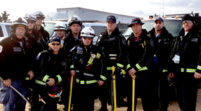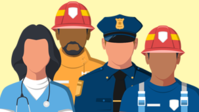The Effects of Trauma on First RespondersReports of natural and human-caused disasters are ever present throughout our country. We hear the stories of seemingly insurmountable challenges faced by families, neighbors, businesses, communities, and sometimes entire states or territories. The one constant we can rely on before, during, and after a disaster is the support and service given by first responders. But what do first responders need for their own recovery from traumatic events? This issue of The Dialogue from SAMHSA’s Disaster Technical Assistance Center (DTAC) highlights the challenges first responders experience throughout all phases of disaster response—the visible and obvious and the veiled. The authors provide insight into the unique culture of the first responder community. This awareness is significant to providing effective behavioral health services in a manner that is valuable to and accepted by first responders. What have you found to be essential to the care of your first responder team or community? Are there important lessons learned from your field experiences that could be highlighted by SAMHSA DTAC in future issues of this newsletter? Please share your experiences via email to DTAC@samhsa.hhs.gov. Selected reader comments will be printed in a future edition of The Dialogue. | ||||||||||||
Issue Highlights
About The Dialogue The Dialogue, a quarterly technical assistance journal, is an arena for professionals in the disaster behavioral health field to share information, resources, trends, solutions to problems, and accomplishments. Read previous issues of The Dialogue. The views, opinions, and content expressed in this publication do not necessarily reflect the views, opinions, or policies of the Center for Mental Health Services (CMHS), the Substance Abuse and Mental Health Services Administration (SAMHSA), or the U.S. Department of Health and Human Services (HHS). |
miércoles, 23 de mayo de 2018
The Dialogue: The Effects of Trauma on First Responders
The Dialogue: The Effects of Trauma on First Responders

Suscribirse a:
Enviar comentarios (Atom)


























.png)











No hay comentarios:
Publicar un comentario